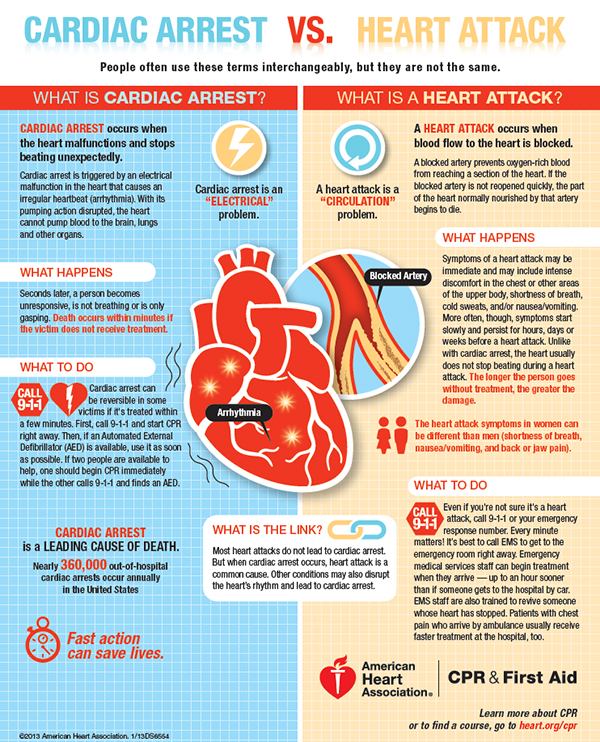Join me in spreading heart health awareness
The month of February is all about the heart. Not only is it when we celebrate Valentine’s Day, but it’s also American Heart Month – a month dedicated to raising awareness about heart disease and how to maintain a heart healthy lifestyle.
I’m passionate about learning ways I can protect my heart, and sharing them –because heart disease runs in my family. My mother suffered from congestive heart failure, since she was first diagnosed at the age of 40 with mitral valve prolapse. This condition occurs when the valve separates from the upper and lower chambers, causing fluid to leak out into the lungs and elsewhere. Over time it led to other major issues in both her heart and lungs, and sadly, she passed away last year.
I am proud to announce that I am taking a stand on this issue and serving on the New York City Go Red For Women Executive Leadership team as the Open Your Heart Chair. The Go Red Open Your Heart Campaign provides critical funding for the American Heart Association’s mission to support awareness efforts and cutting-edge research related to cardiovascular health and stroke prevention in women. All women need a healthy heart, healthy brain and to be armed with the resources they need to fight their number one health threat. Through this campaign, we have the opportunity to bring a voice to the silent killer and will save the lives of many mothers, daughters, sisters, friends and coworkers we know and love.
The NYC Go Red For Women Campaign culminates with a celebratory luncheon with over 1200 influential leaders from the medical, social, corporate and philanthropic communities, to be held on Friday, March 10th at the Hilton, in NYC.
Please stand alongside me and consider supporting this cause by making a donation to help me reach my personal $40,000 goal. Your donation will save lives!
In honor of American Heart Month, I also wanted to share some fascinating statistics about the heart.
- Heart disease is the leading cause of death worldwide – each year in the United States, approximately 610,000 people die from heart disease.
- Annually, about 735,000 Americans experience a heart attack
- Our heart beats one hundred one thousand times per day.
The CDC lists these 5 symptoms to watch for:
- Chest pain or discomfort
- Upper body pain or discomfort in the arms, back, neck, jaw or upper stomach
- Shortness of breath
- Nausea, lightheadedness, or cold sweats
- Persistent heartburn
It’s important to note that women’s and men’s signs of heart issues can be very different. If you have any of the above symptoms or similar, don’t hesitate going to see your doctor.
6 lifestyle tips to reduce your risk of developing heart disease
- Eat a heart-healthy diet – rich in fruits, vegetables and low-glycemic carbs, such as quinoa or whole grains.
“Research has shown that a diet high in fruits and vegetables, whole grains, legumes, nuts and olive oil, consistent with the Mediterranean diet, can decrease the incidence of heart disease by 30%, whereas diets high in saturated fats and simple sugars can increase the risk of heart disease by 30%,” according to Dr Susan Steinbaum, cardiologist, Director of Women’s Heart Health at Lenox Hill Hospital in New York City and author of Dr. Suzanne Steinbaum’s Heart Book: Every Woman’s Guide to a Heart-Healthy Life.
- Maintain a healthy weight.
- Get enough quality sleep.
- Don’t smoke.
- Exercise for 30 minutes several days per week.
- Manage stress proactively.
I’ve also listed some helpful resources to get you started:
1.Heart Math can teach us to live from the heart and unlock our natural intuitive guidance. Heart Math has several great devices to help with reducing stress! You can learn more about improving your overall physical and mental health from the book by Doc Lew Childre and Howard Martin, The HeartMath Solution: The Institute of HeartMath’s Revolutionary Program for Engaging the Power of the Heart’s Intelligence.
- Women Heart for support groups and events.
- Health Line for heart disease statistics.
- HealthFinder.gov for their February Tool Kit.
- MedicineNet.com to learn about heart disease and stress.
- Mayo Clinic for strategies to prevent heart disease.

Rose Caiola
Inspired. Rewired.
Post Disclaimer
This content is for informational purposes only and does not constitute medical advice. Please consult a healthcare professional for any medical concerns.




